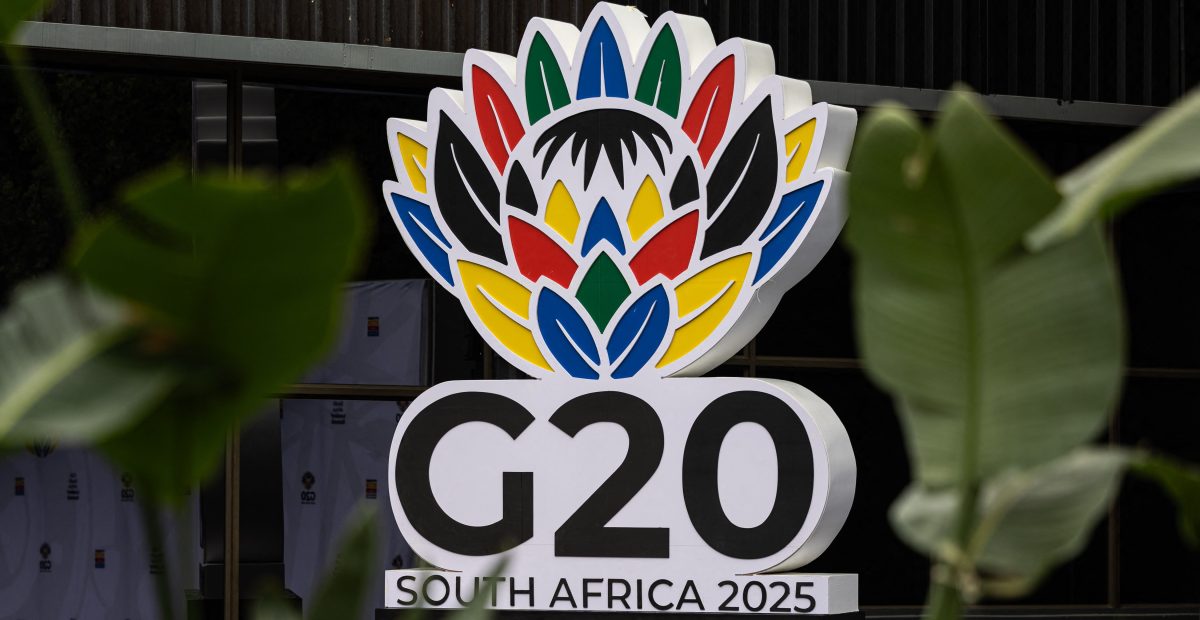UPDATE: President Donald Trump will not attend the G20 Summit in Johannesburg, South Africa, set for November 22-23, 2023. His absence is compounded by the non-attendance of leaders from China, Russia, Argentina, and Mexico, raising urgent questions about the credibility and effectiveness of this vital global forum.
This year’s G20 is particularly significant as it marks the first gathering on African soil, a platform intended to address pressing issues like global financial stability, climate change, and international trade. With key leaders missing, the summit risks losing its impact, with 85 percent of global GDP and 75 percent of international trade represented by nations that are now sidelined.
Trump’s decision stems from his controversial claims regarding violence against white South Africans, which has been categorically denied by the South African government. In a statement, Trump declared that no U.S. officials would attend, suggesting a severe diplomatic rift. However, Cyril Ramaphosa, President of South Africa, hinted that the U.S. might reconsider, claiming a delegation could still be forthcoming. The White House swiftly dismissed this as “fake news,” asserting that a U.S. representative would only be present for the handover of the presidency, not for official discussions.
Karoline Leavitt, White House press secretary, emphasized this point, stating that David Greene, the embassy’s charge d’affaires, would simply be there for the send-off and not to engage in talks. This clarification underscores the tenuous nature of U.S. involvement in the summit.
Meanwhile, China’s President Xi Jinping will also be absent, delegating Premier Li Qiang instead. The Kremlin confirmed that Vladimir Putin is skipping the event as well, sending Maxim Oreshkin, deputy head of presidential administration, in his place. Putin’s non-attendance follows the issuance of an arrest warrant by the International Criminal Court for alleged war crimes, complicating his participation in any ICC member countries, including South Africa.
Other notable absences include Javier Milei, President of Argentina, who will send his foreign minister, and Claudia Sheinbaum, President of Mexico, who will also be represented by a senior minister. These decisions highlight a growing trend among world leaders to prioritize domestic issues over international diplomacy.
The implications of these absences are significant. Christopher Vandome, a senior research fellow at Chatham House, noted that without U.S. leadership, the summit may lack a “grand moment of solidarity” and fail to spur decisive action on critical global challenges like debt relief and climate finance—issues that South Africa aims to highlight.
At a press conference, Ramaphosa emphasized the importance of equal representation among nations, stating, “It cannot be that a country’s geographical location or income level or army determines who has a voice.” His remarks underscore the challenges the G20 faces in maintaining its authority and relevance amidst such high-profile absences.
As the world watches closely, the G20 Summit stands at a crossroads. With fewer key leaders attending, the effectiveness of the discussions remains in question. What happens next will be critical, not just for the participating countries but for global cooperation as a whole.
Stay tuned for updates as this developing story unfolds.
